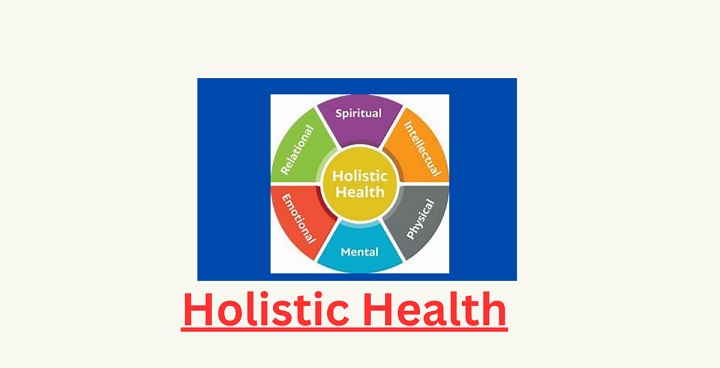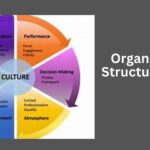When it comes to mental health, standard care frequently evokes thoughts of counseling, prescription drugs, and conversations focused on mental health diagnosis. These traditional approaches, which are essential for treating mental health problems, have long been the cornerstone of therapy and concentrate on symptom relief using accepted medical and psychological interventions. Nonetheless, there is a growing movement in favor of holistic mental health, which takes a more comprehensive approach. Despite not being new, this idea is receiving more attention now since it takes a holistic approach to well-being in our globalized society.
The goal of holistic mental health is to see a person’s life as a whole, not only the difficult parts. By combining the mental, physical, social, emotional, and spiritual facets, it provides a more comprehensive view of health. We will explore the fundamental ideas of holistic mental health, how it differs from conventional approaches, and why it is increasingly important to discuss in mental wellness circles as we navigate the complex field of holistic mental health.
This investigation aims to comprehend the entire range of human health, not merely to follow a fad. We’ll look at how holistic approaches can support traditional medical care, how lifestyle modifications affect mental health, and how important it is to take into account our spiritual and social ties in order to lead a healthy life. We’ll also explore the scientific evidence supporting holistic techniques and hear from professionals and people who have been transformed by an all-encompassing approach.
This inquiry strives to open doors to alternative viewpoints, highlighting that mental health is as diverse and complicated as the individuals it impacts, regardless of your level of familiarity with mental health ideas. Now let’s take a closer look at holistic mental health and see how adopting this perspective might lead to new opportunities for recovery and wellbeing.
What Is Complete Mental Health?
A more comprehensive approach to mental health than standard techniques is known as holistic mental health. Instead of concentrating only on signs and diagnoses, it takes into account every facet of an individual’s life. This entails taking into account social settings, spiritual beliefs, physical health, and mental and emotional states in addition to mental and emotional states. The premise is that mental health is an essential component of total health rather than a separate entity.
One of the main tenets of holistic mental health is the union of the body, mind, and spirit. It is predicated on the knowledge that these components are intricately linked and that an imbalance in one can have an impact on the others. For example, long-term physical health problems can cause mental health problems, and emotional problems that are not treated might cause physical symptoms. When appropriate, holistic techniques also incorporate established treatments together with alternative therapies, lifestyle modifications, and self-care routines.
When comparing holistic mental health to conventional practices, several differences emerge. Traditional mental health care typically centers on diagnosing and treating mental disorders, often with psychotherapy and medication. It tends to be more symptom-focused and may not always consider factors like lifestyle or personal relationships. In contrast, holistic mental health is more preventative and wellness-oriented. It encourages individuals to take an active role in their health, considering everything from diet and exercise to personal values and social connections. While conventional methods are crucial, especially in acute or severe cases, holistic approaches offer a more comprehensive path to long-term mental wellness, advocating for a balance between traditional treatments and broader lifestyle considerations.
Components of Holistic Mental Health
1. Physical well-being: nutrition, exercise, and rest
A holistic approach to mental wellness requires good physical health. Our mood and mental health are strongly impacted by the food we eat. Mental acuity and emotional stability can be improved with a well-balanced, nutrient-rich diet. Similar to this, regular exercise boosts mood naturally by releasing endorphins, which are known for being more than just a measure of physical condition. Furthermore, sleep is essential. Emotional control and cognitive functions benefit from getting enough sleep. As a result, a holistic approach places a strong emphasis on three key components of mental health: a healthy diet, consistent exercise, and enough sleep.
2. Emotional Well-Being: Recognizing Feelings, Handling Stress, and Building Resilience
A thorough comprehension and appropriate handling of emotions are essential components of holistic mental health. It’s about identifying our emotions, comprehending where they come from, and figuring out healthy ways to communicate them. Another important component is stress management. Deep breathing, awareness, and meditation are important techniques. Emotional well-being also depends on cultivating resilience, or the capacity to overcome hardship. This entails developing an optimistic outlook and learning to see obstacles as chances for personal development.
3. Social Health: The Value of Community and Relationships
Since humans are social creatures, the relationships we have with other people have a big influence on our mental health. Good relationships boost feelings of belonging, lessen feelings of loneliness, and offer support. The need of solid social relationships and community involvement is acknowledged by holistic mental health. It promotes building deep connections, getting involved in the community, and asking for help when you need it. In the digital age as well, physical relationships are essential to our overall health.
4. Spiritual Well-Being: Individual Principles, Objective, and Relationship
Although it’s a crucial aspect of holistic well-being, spiritual health is frequently disregarded in talks of standard mental health. This is about discovering meaning, purpose, and a sense of connectedness to something bigger than oneself; it doesn’t always entail religion. It could entail engaging in activities that are consistent with one’s principles, going on nature walks, or practicing meditation. Taking care of one’s spiritual well-being allows one to connect with a sense of purpose and calm, experience gratitude, and gain perspective.
The Benefits of Holistic Mental Health
Looking at changing societal attitudes is the first step in understanding why holistic mental health works. A notable change was seen in the 2019 Harris Poll for the American Psychological Association: 87% of American adults now believe that there is hope for improvement and no longer see having a mental health illness as a cause of shame. This increasing recognition highlights the significance of all-encompassing strategies in mental health treatment, of which holistic mental health is an essential component.
Taking Care of Mental Health Issues at Their Sources: The goal of holistic mental health is to find and treat the underlying causes of mental health issues rather than only treating their symptoms. This method looks at many different aspects, such as diet, lifestyle, interpersonal connections, and traumatic experiences, in an effort to identify underlying problems that might be linked to mental health difficulties. This in-depth investigation frequently results in longer-lasting and more sustainable remedies since it tackles the fundamental elements of wellbeing rather than just treating the symptoms.
The Relationships Between Spiritual, Emotional, Social, and Physical Health: The efficacy of holistic mental health is rooted in its acknowledgement of the interdependence of several facets of health. For example, unresolved emotional difficulties can cause physical symptoms, while physical health concerns can cause mental health problems. Holistic mental health offers a more thorough and balanced approach to well-being by addressing the individual as a whole. This holistic perspective guarantees that no aspect of a person’s well-being is disregarded on their path to mental health.
Using Holistic Mental Health Techniques in Daily Life
Starting a holistic mental health journey involves more than just comprehending its tenets; it also involves integrating them into your daily activities. At first, this may seem overwhelming, but the secret is to start small and maintain consistency. We’ll go over doable and realistic strategies for incorporating holistic practices into your everyday life in this part. We’ll look at how many factors, such as food, exercise, and maintaining social and spiritual ties, can all contribute to improving your mental health. These factors include mindfulness and meditation. Recall that progressive improvement rather than an abrupt shift is the aim. Let’s explore how you might include holistic mental health into your daily life in a way that is both rewarding and natural.
Comprehensive Instruction for Regular Meditation and Mindfulness
Start by designating a definite period of time for mindfulness or meditation each day, even if it’s only five minutes.
To begin, utilize applications that offer guided meditation. They can be quite beneficial and provide newcomers with planned pathways.
When engaging in regular tasks like eating or walking, practice mindfulness and give your complete attention to the moment and your senses.
Including Exercise in a Way That Works for You
List the physical pursuits you find enjoyable. It might be a dance class, yoga, walk, or swim. Enjoyment and consistency are crucial.
Make sensible objectives. If you’ve never worked out before, begin with quick sessions that last 10 to 15 minutes, then progressively extend them.
Think of “movement snacks” as little bursts of exercise spaced out throughout the day, such as a brisk stroll or stretch.
Enhancing Nutrition for Complete Mental Wellness
Prioritize eating a well-balanced diet that is high in fruits, vegetables, whole grains, and lean meats. An important factor in mental health is nutrition.
Drink plenty of water and watch how much sugar and caffeine you consume as these can impact your energy and mood.
A balanced diet can be maintained with meal planning, especially on hectic days.
Establishing and Sustaining Social Networks
Maintain regular contact with friends and family, even if it’s simply by a brief phone call or message.
Join organizations or clubs that share your interests. They provide chances to connect with people who share your interests.
One fulfilling method to meet people and give back to the community is through volunteering.
Examining Spiritual Traditions
Take part in peaceful and uplifting activities, such walks in the outdoors, meditation, or religious services.
Consider your own principles and views, then look for opportunities to apply them to your day-to-day activities.
Journaling is a useful tool for spiritual development and contemplation.
Getting Expert Advice When Needed
Even while holistic approaches have advantages, they should be used in conjunction with expert medical counsel, particularly when there are serious mental health concerns.
To assist you in combining holistic approaches with other forms of treatment, think about speaking with a therapist or counselor.
Useful Advice for Including Holistic Practices
You might be surprised to learn how easy it is to include holistic activities like mindfulness, yoga, and meditation into your everyday routine. Starting with modest, doable steps and working your way up is the key.
1. Being mindful:
It’s not necessary for this to be difficult. You can begin by practicing mindfulness for just five minutes every day. You can either be totally present when you’re doing something, like drinking tea, taking a shower, or walking to work, or you can sit quietly and concentrate on your breathing. The idea is to focus on the here and now, observing your environment, your thoughts, and your sensations without passing judgment. You can gradually extend the amount of time you spend engaging in mindful practice as you become more at ease.
2. Introspection:
Start with quick meditation sessions led by a guide. Beginner guided meditations can be found on a plethora of applications and internet sites. These can assist you in maintaining focus and preventing mental digression. Maintaining consistency is essential. Over time, even a short daily meditation practice can have a big impact on your mental health. You can try out various forms of meditation as you get more comfortable with the practice to see which one suits you the best.
3. Yoga:
Yoga can be very basic and is about the mind-body connection and balance. Begin with simple postures, paying attention to your breathing and your body’s sensations. A little yoga practice in the morning or evening can make a big difference in one’s physical and mental well-being. Recall that yoga is a personal practice that emphasizes development and self-connection over perfection.
4. Practice Deep Breathing:
You can perform these anytime and anyplace. If you’re feeling anxious or overburdened, stop and concentrate just on your breathing. Take a deep breath via your nose, hold it for a short while, and then gently release it through your mouth. This technique can help you relax and find your core quickly and efficiently.
5. Including Mindfulness in Everyday Tasks:
It is possible to incorporate mindfulness into routine daily tasks. Consider observing the tastes and textures of your food when you eat. Pay close attention to every note and instrument when you’re listening to music. By keeping you rooted in the here and now, this practice eases tension and anxiety.
It’s consistency, not intricacy, that’s the secret to success with these approaches. It involves starting small and allowing them to develop into a pattern that benefits your mental well-being. These routines can eventually become second nature to you, assisting in the development of a more comprehensive approach to your health.
Advice for Implementing Sustainable Changes Gradually
Changing one’s lifestyle over time is more important for a holistic approach to mental health than short-term solutions. Choose one or two areas that need work, like more frequent social interaction or improved sleep hygiene. Establish attainable objectives and progressively implement these adjustments into your daily routine. Recall that building sustainable habits starts with tiny, regular steps. Be patient with yourself and accept slow progress instead of hurrying the process.
Issues and Matters Concerning Holistic Mental Health
Typical Obstacles to Using a Holistic Approach: Adopting a comprehensive strategy for mental health isn’t always easy. One major obstacle at first is the possibility of experiencing overload while incorporating several new habits into everyday life. It is common to feel as though there are too many options available to choose from, including mindfulness exercises, diet plans, and exercise regimens. Furthermore, another challenge can be doubt, either personally held or encountered from others, regarding the efficiency of these tactics, particularly when instant results are not visible. Furthermore, it can occasionally be challenging to locate trustworthy and legitimate materials or advice for putting these ideas into reality.
When necessary, striking a balance between traditional treatments and holistic practices: It’s critical to understand that, particularly for severe mental health illnesses, holistic mental health approaches work best when combined with conventional therapy. The difficult part is striking the correct balance. In order to make sure that holistic methods support conventional treatments rather than conflict with them, it is imperative to collaborate with healthcare specialists. To develop an integrated care plan, this may entail collaborating with physicians, therapists, and holistic practitioners.
How to Tailor Holistic Mental Health Techniques to Each Person’s Needs: A one-size-fits-all approach to holistic mental wellness does not exist. An effective practice for one individual may not be as beneficial for another. Customizing these procedures requires a great deal of introspection and trial and error. It necessitates knowledge of one’s own emotions, body, and way of life. For example, although some people may benefit from yoga, others may find greater comfort in writing or taking walks in the outdoors. The secret is to pay attention to what your body and mind are telling you, and to change or substitute routines as needed to suit your needs and preferences. Consulting with a holistic health professional can also help customize procedures to meet individual needs.
In summary
When we consider the significance of holistic mental health, we can see that a more balanced and satisfying existence results from combining the physical, emotional, social, and spiritual facets of our well-being. Even though the trip is incredibly fulfilling, it can also be complicated and multifaceted, necessitating constant assistance and access to a range of services.
Amidst this necessity, platforms such as Woliba quietly become invaluable allies. Offering a variety of holistic mental health services to staff members can help people on their journey toward wellbeing by gently guiding and supporting them. With its emphasis on overall well-being, Woliba provides an illustration of how care and technology might work together to help with this journey. It’s about subtly enabling each individual to investigate and engage in wellness in a way that best meets their own requirements.
Let’s acknowledge the contribution these platforms can make to our progress toward holistic mental health as we get to the end of our conversation. Having access to the appropriate materials makes every step we take toward wellness more deliberate, informed, and maybe even simpler. Thus, as you proceed down your journey, think about the ways in which incorporating tools such as Woliba can assist and improve your holistic mental health practices. A balanced existence is a journey that takes time to complete, but it is possible with the appropriate help. Get in touch with us right now!






